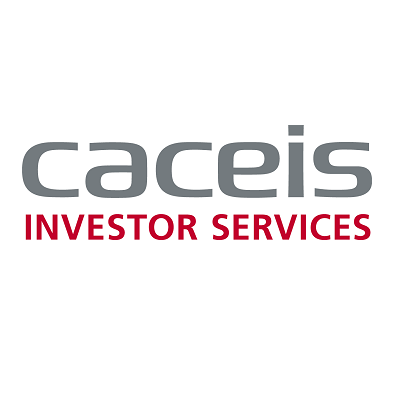CACEIS Academy for Pension Schemes and Fund Boards is an educational initiative designed for trustees and fund boards so they can stay ahead of changing regulation on governance.
We provide insight and training across many topics, including sustainable governance, ESG and climate risk and future trends, such as blockchain and digitisation. We also partner with industry practitioners to bring additional subject-matter expertise into our educational content.
Contact us for your training needs
Breaking down key terms
We recognise that when you delve into the world of ESG and climate change, getting to the heart of some of the terms that are used can be complex. We uncover some of the most commonly used ones.
Roundtable Series
As part of our education focus, we host roundtables that take a deep dive into particular subject matter areas so you can see how your peers are thinking about the opportunities and challenges
Biodiversity risk
We’ve partnered with the Zoological Society of London to provide some insight and tips on assessing and managing biodiversity risk, which is quickly becoming an area of focus for the financial services industry
Our training sessions
We have developed a range of training modules for trustee and fund boards that will be delivered by subject-matter experts in each area.
Natural capital
Synopsis
Natural capital risks reflect the impact that nature loss has on a business. Some of these risks may not be immediately obvious because they might occur across a company’s supply chain. For example, a food production company might depend on nature it its supply chain for pollination of crops but harmful pesticides to speed up crop production can harm the pollination process and degrade the quality of crops or impact local water supply. It’s going to be important for asset managers and pension schemes to understand the materiality of nature-related risks that their investments might be exposed to over and above climate-related financial risks. Frameworks such as the Task Force for Nature Related Financial Disclosures will become key in understanding these risks.
Key learning points
- Understand the concept of nature-related risks and biodiversity
- How to integrate nature into decision making
- Understanding the Task Force for Nature Related Financial Disclosures framework
Assessing climate risk
Synopsis
We’ll uncover the different types of risks that you should be aware of, and then use practical examples of how you can use data to assess the impact of climate risk on an investment portfolio. We’ll also talk about the subject of materiality – understanding where your key risks lie. We’ll also outline what best practice looks like within the financial services sector and what regulatory developments to expect.
Key learning points
- Differentiate between the different types of climate risk - physical and transition risks
- Understanding the impact of climate risk to companies and bond issuers
- Understanding the different approches used to assess climate risk
- How to interpret information relating to climate risk
- Provides the foundations to help you build your climate framework
Assessing ESG factors
Synopsis
This module will start by looking at the regulatory landscape and then unpack the different categories of ESG risk, providing case studies on where material ESG issues have created reputational damage for companies. We’ll explain some of the different methodologies used to build an ESG framework and outline what data is available and how to utilise it to make decisions on ESG risk factors. Finally, we’ll explore how ESG risks can be monitored and governed.
Key learning points
- Unpack the different components of ESG - Environment, Social & Governance
- Understanding of the different approaches used to assess ESG risks
- How to interpret information relating to ESG
- Understanding how to develop an ESG governance framework
Cost Transparency & Benchmarking (Pension Schemes)
Synopsis
We’ll begin looking at the role of the Cost Transparency Initiative and the developments in cost transparency over the last three years. Drawing on our experience, we’ll look at some of the practical results and trends we are seeing from cost transparency reporting so you can understand some of the potential issues around costs. We’ll explore a case study in how a pension scheme moves through the cost transparency process from start to finish, and look at key areas in the process, such as data quality and how to develop a governance framework around cost transparency.
Key learning points
- Knowledge of developments in cost transparency
- Understand some of the key trends in costs
- A practical case study that can be leveraged for your own scheme’s cost transparency process
- An understanding into the quality of data and why this is important for good governance
- The ability to build a framework for your own scheme’s cost transparency exercise
Blockchain and digital assets
Synopsis
Drawing on our trainers’ specialist knowledge in this area, this module will begin by looking at the concepts of blockchain and digital assets. We’ll explore how this is driving innovation in areas such as digital custody and tokinised funds – and how this sits alongside traditional custody and administration. We’ll also explore some of the practical considerations on governance.
Key learning points
- An understanding of how blockchain and digital assets work
- Knowledge on how digital custody and tokinised funds will differ with traditional approaches
- Knowledge of the opportunities and challenges in this area
- Insight into governance considerations
The role of a custodian
Synopsis
Custodians are key to holding pension scheme and fund assets securely. We begin by looking at the role of the custodian and all the functions within custody. We’ll delve deeper into topics such as sub-custody networks, custodial governance and what regulation requires custodians to do. This will include a quick look into client assets and the importance of knowing how your cash is held. We’ll then explore the concept of operational resilience, which is crucial for all custodians, and then look at how the role of the custodian is changing, especially with more data and regulatory drivers for ESG and climate reporting.
Key learning points
- Equip you with broad-based knowledge on the role of a custodian
- Areas to consider that you can ask of your current custodian
- Insight into some of the governance considerations you should be aware of
The role of a depositary
Synopsis
What happens to a fund if everyone sells? Are the fund assets safe? These are some of the areas that a depositary has responsibility for. This module starts by looking at previous events and how they have shaped current regulations. We’ll then look at the role of the depositary and how this might evolve with the emergence of funds that have a focus on ESG and climate factors. We’ll take a deeper look into some of the oversight functions of a depositary, including safekeeping and investment restriction monitoring.
Key learning points
- A depositary is interconnected – its a key link in the financial value chain and understand their role can help you define your governance framework
- Insight into how depositary functions oversee ESG and climate factors if they are part of a fund objective
Stewardship and engagement
Synopsis
Stewardship and engagement has been a strong and powerful discipline for asset owners and asset managers, especially to align ESG and climate risk policies. In this module, we’ll highlight what good practice looks like and how a rigorous framework can be developed to build strong governance around stewardship and voting. We’ll also explore concepts such as dis-investment and what data is available to help validate any policy around stewardship and engagement. We’ll also uncover strategies for how asset owners, for example, can express their ESG and climate policies through funds that they own, which might not provide them with voting rights.
Key learning points
- Understand what good practice looks like in stewardship and voting
- Knowledge of the approaches and different engagement styles
- Tips on building a stewardship and voting framework
- Practical examples to leverage that you can apply for effective stewardship and engagement
Sustainability governance
Synopsis
This module looks at the evolution of sustainability governance, which is quickly becoming a key requirement for asset owners and fund managers. We’ll outline what this means for trustee and fund boards, by looking at regulatory expectations and by exploring best practice frameworks. We’ll then take a practical approach by outlining some of the important areas to consider in establishing a sustainability governance framework, which includes the different types of data trustee and fund boards can get their hands on to drive effective governance. Other factors that drive good governance decision-making, such as an independent view and diversity of opinion will also be addressed.
Key learning points
- Understand the changing regulatory environment as it relates to sustainability governance
- A look at the different governance challenges, such as ESG, Climate risk and value for money or assessment of value
- Knowledge of the data available that can help drive good sustainability governance
Cyber security
Synopsis
Cyber security is the application of processes to protect data and individuals from cyber attacks. For trustee and fund boards, knowledge and processes around cyber security is another pillar of good governance. It’s also a critical board-level issue for asset managers and a critical issue for pension schemes in limiting the potential financial impact of a cyber attack on the scheme and the members themselves. We’ll look at the different types of cyber security risks and bring together a practical example of what a incident response plan looks like, based on our expertise in this area, and points to consider in understanding what makes up a cyber footprint and what measures need to be put in place to protect data.
Key learning points
- General understanding of cyber security
- Knowledge of the many forms of cyber security risk
- Tips to help mitigate against a cyber-attack
- Expanded focus on governance
Not sure which training is right for you? We’re here to help.
Please contact the team if you would like to book one of these training modules for free.
We’ll deliver them virtually or if possible, face-to-face.
Latest webinar
All webinarsGovernance on fund boards
We assembled an expert panel to talk about governance and the challenges around access to data within the asset management sector.
The webinar addresses themes such as fund board governance, data gaps and opportunities
09.06.22 — 1 Hour


















